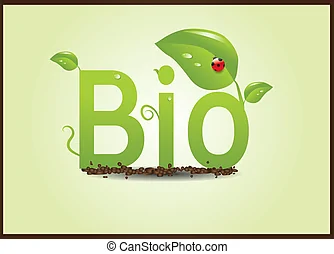
This is another genre that I often never think very deeply about. Usually I think of a biography with the cover of an enlarged face, often from their shoulders up, sitting on a slightly dusty book shelf. To me, biography is a genre I have never sought out to intentionally read during my educational years. Yet, for my personal interests and those famous individuals who hold importance to me, I actually do have two biographies sitting in the bookshelf below my T.V, in my apartment. Still waiting to be read, seen in the pictures to the right. I guess I have always thought of biographies for "older" readers. Perhaps this is because I feel that most people on the cover of a book to read are for the adult generation, versus younger stars or people around my age. Until I found pictures of people who sparked my interest on the cover of rather beefy sized books, I would never have thought of purposely buying a biography to read it. I feel that a few questions which need to be answered, especially for young students to become interested in biographies, is what exactly does this genre provide readers? Why do we often seek to hear about the lives of others?
I really enjoyed my peers presentation because it opened my eyes to a genre I have often feel that I am "out of experience with"! It was refreshing be reminded of the differences of an autobiography (first-person chronological life span account), personal narrative (one experience), biography (someone else's life described by another person) and memoir (life events recounted with underlying themes). Which was shared from my peers handout guide, in addition to Tompkins. When thinking about the two bibliographies I own, I was reminded of a book I read not to long about for a college course at Nazareth. This book, pictured to the left, I would say is a personal narrative while also being a memoir. This book details a teachers struggle with the ups and downs of educating, but he also shines light on the important messages to take away (while using rich strong language to detail the real accounts in the process). I remember how this educational book made me feel after it. I was shook, both excited and terrified of being, becoming, a teacher. Reading his words, his experiences, his thoughts, had impacted me because it struck a chord of understanding and curiosity for what my own experiences would be to come. He had assured readers that it was going to be difficult, just as I was starting to realize, but he also shined light on how pursing this goal is the most rewarding feeling to ever go after.

I think it is incredibly powerful to allow our students to experience biographies. Why not include a wealth of the thoughts, achievements, and authentic human experiences that students can learn from? When we expose students to this style of writing, we are teaching them to look at how expression/experiences is being worded and evoked. The language of the writer will be recognized for the purpose of reading and hearing the "true accounts of people's lives... gain[ing] insight into their subjects' personalities" (Tompkins, 2014, p. 230). By reading mentor texts from this genre, whether it is an autobiography, memoir or so on, we can come to teach students to focus on the demonstrated language seen. This will be used towards their own writing. In fact, I loved the 6- Word memoir we completed in class! This helped to indeed "promo[t] writing for the sake of expression, to reinforce the tenets of the writing process" (Saunders & Smith, 2014, p. 600). It made me really stop to think, how can I use language to portray my feelings or who I am, an aspect of me/my being, in only 6 words? When teaching the bibliographical genre, students have to come to recognize that they can connect with the reader or understand similar experiences, to support their own comprehension. They can read about experiences new to themselves, and they can reflect on how to be an author that is telling their own life, the life of another or so on.
When I think of biographies, my interest is peaked for reading more books in each detailed style. Our knowledge continues to build the greater we come to hear of similar (and different) experiences. There is certainly power in hearing others stories, but there is also power in having the chance to share your own experiences and understandings of the world around you. Based on this, students can partake in this style of writing, by " start[ing] with their earliest memories of traditions, education, religion, triumphs, defeats" (Muhammad, 2020, p/. 52). We can start to have conversations and discuss the importance of actions, of ideas, and recording/reading about the life of individuals who serve as models of excellence and everyday (even unexpected) "heroes".
Muhammad, G. (2020). Cultivating Genius: An equity framework for culturally and historically responsive literacy. New York, NY: Scholastic.
Saunders, J. M., & Smith, E. E. (2014). Every word is on trial: Six-word memoirs in theclassroom. The Reading Teacher, 67(8), 600–606.




Ah-ha! What a great way to share your thinking about the power of biographies as well as to make connections to outside sources -- such as Muhammad. Anyone who reads this entry will have a clear understanding of how the readings and the Genre Expert Presentation really helped you to "re-see" the power reading (and writing) our own stories.
ReplyDelete